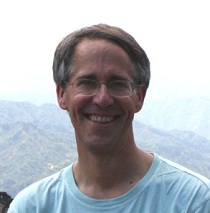Leaders of a 2014 pro-democracy protest in Hong Kong involving thousands of students were sentenced to prison this August. This is one recent example of China’s storied legacy of youth protest, which is the expertise of Jeffrey Wasserstrom, chancellor’s professor of history at the University of California at Irvine. Wassterstrom is visiting Trinity on Thursday, Oct. 26, to give a lecture on Asian youth political movements.
Wasserstrom focuses on Chinese youth culture and situating their current political climate within historical context. Because of the timeliness of this topic, understanding Asia and its political culture is extremely important and relevant to Trinity students.
“Asia is a big part of the world,” said Gina Tam, assistant professor of history at Trinity. “Of the seven billion people in the world, 4.4 billion of them live in Asia and we think it’s important to give students an introduction to that and we do that by making it relevant to their own lives. If we tie it around youth and look at that thematically, it allows students to look at their own experiences and discuss cultural and historical differences.”
Tam played a huge part in bringing Wasserstrom to speak at Trinity. In 2008, Tam began blogging from Shanghai about her studies there and Wasserstrom contacted her to be a contributor for his blog, “The China Beat.” It was a popular blog that aimed to give scholars a platform to situate their studies into the broader current events sphere and make their research more accessible to everyday readers.
“The idea was to get scholars who know a lot to get their ideas out there in a way that’s interesting to other people,” Tam said. “He asked me to contribute a story about the Shanghai World Expo and I think that really encapsulates why I wanted to bring him here. Professor Wasserstrom has really made his mark on the scholarly world by making China accessible to a non-scholarly audience.”
The lecture also ties in with the First-Year Experience course, Being Young in Asia. In the course, students have been studying China, Japan and South Korea and the misconceptions Westerners have of these countries.
“What we learn about China comes from authors whose views on China may or may not reflect the misconceptions that Wasserstrom wishes to clarify,” said Diego Carrisalez, a first-year in the course. “Lucky for our class we have a student who came from China, and he regularly supplies our class with insight into what China is truly like.”
“I expect to be enlightened in that I will gain a better sense of political life historically and in the present,” said Peyton Tvrdy, another first-year in the class. “I hope to understand better the thought process of those students who participate politically, what their goals are, and how they plan to change China. I feel he would be a wonderful teacher for this purpose.”
Wasserstrom’s talk will discuss Asian youth culture in an accessible way that will allow Trinity students to examine their own political and cultural biases. He was previously written for The New York Times, the Chicago Tribune and the Wall Street Journal.







